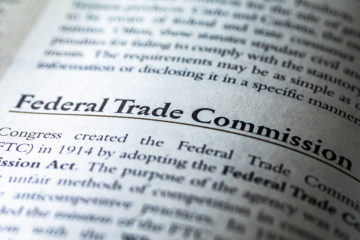The Market Institute President Charles Sauer as a new article in Real Clear Markets on a report the Federal Trade Commission has contacted large retailers regarding the pricing of soda drinks.
He writes:
“The Cola Wars 2.0 have begun, but this time they are on the same side. Coke and Pepsi have joined Microsoft, Amazon, Google, and Facebook/META as targets of Federal Trade Commission (FTC) Chair Lina Khan’s war on big business. Khan favors replacing the consumer welfare standard—which has dominated antitrust policy for the past four decades—in favor of a return to the old “big is bad” standard. One way she’s attempting to achieve this goal is by reviving the FTC’s use of the Robinson-Patman Act, which prohibits “price discrimination.”
According to the FTC’s website: a seller who charges competing buyers different prices for the same goods or discriminates in the provision of ‘allowances’—remuneration for advertising and other services—may be in violation of the Robinson-Patman Act. This type of price discrimination can give preferred customers a market advantage that has nothing to do with their superior efficiency. Price discrimination is generally lawful, particularly when it reflects the different costs of dealing with different buyers or is the result of a seller’s attempt to match a competitor’s bid.
There is great room for subjective judgment of government officials to decide when price discrimination is a justifiable recognition of one buyer’s superior efficiency or an unjust exercise of unfair market power. This may be one reason why the FTC has not brought a price discrimination case since 2000. Unfortunately for American businesses, workers, and consumers, Lina Khan and her allies view giving bureaucrats power to persecute businesses based on their subjective determination that the business is too big or engaging in unfair conduct as a feature, not a bug, of antitrust enforcement.
Thus, they are all for using the Robinson-Patman ban on price discrimination against big business. The FTC has chosen soft drinks as the first use of the law. According to several media reports, the FTC has written to Walmart, Costco, and other major retailers requesting information regarding their inventory purchases of products from the “big two” American beverage companies: Coke and Pepsi. The agency is interested in whether the big two beverage companies are engaging in illegal price discrimination by selling their products to big retail chains that sell their products at a lower price than they sell to small independent retailers.
In order to justify a case of price discrimination, the FTC must ignore the fact that large retailers and chain grocery stores are able to take advantage of economies of scale to offer consumers both greater selection and lower prices than smaller independent stores. This means the beverage manufacturers have an incentive to sell their products to the retailers at a lower price than they would to smaller retailers since they expect sales to be higher at the larger chain stores than at small independent ones.
Large retailers like Walmart are regularly attacked by progressives like Khan for putting small independent stores out of business. This line of attack ignores how large retailers can help small businesses grow by serving as an “anchor store” from shopping malls and plazas. The large retailers attract consumers to the center or plaza, many of whom will patronize the smaller stores.
If the FTC forces Coke and Pepsi to sell their products to all retailers at the same price, there will be one of two outcomes: first, the companies may raise the prices they charge the big stores, likely causing the big stores to raise their prices. This would obviously hurt consumers and the beverage companies who may find they are making less revenue despite the increase in price. The second outcome would be for big companies to charge small stores the same they charge large stores. This would likely cause the beverage companies to lose revenue. They may respond to this by reducing the range of products they offer retailers, thus also negatively impacting consumers.”


